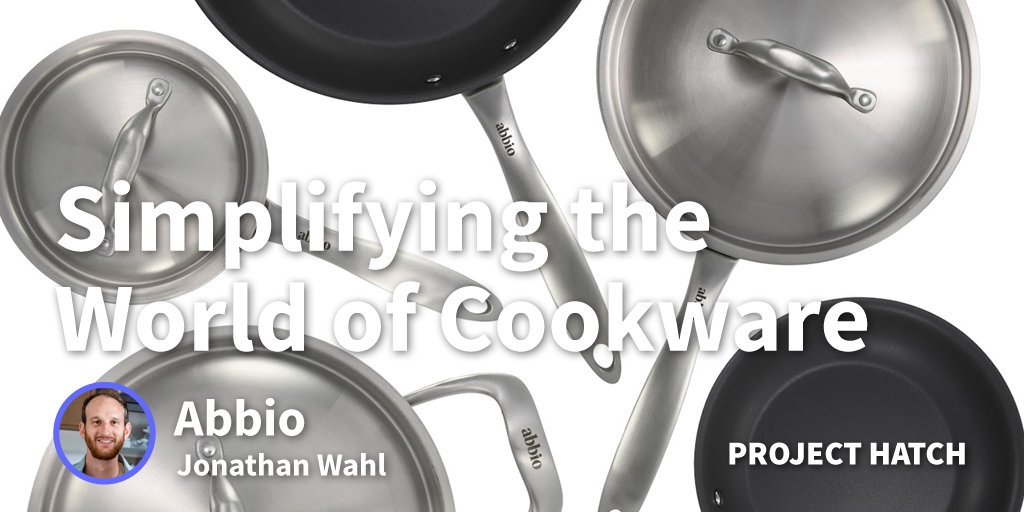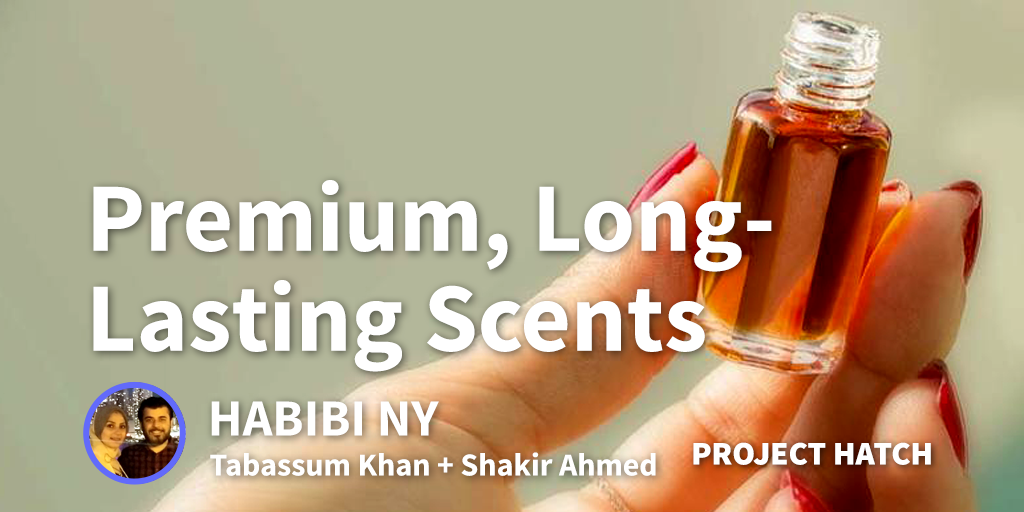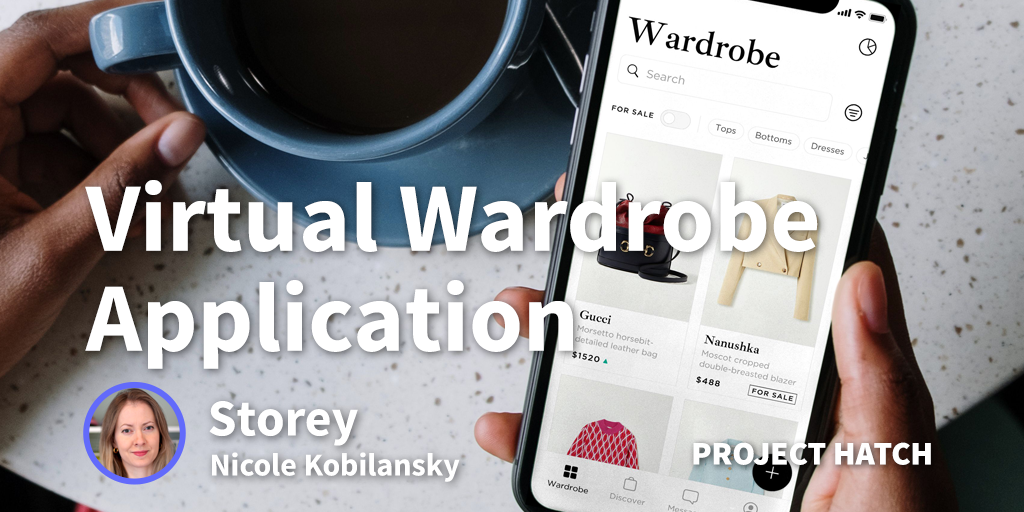My name is Jonathan, and I'm the CEO of a new kitchenware company called Abbio. We launched in Sept 2019, and we are growing 100% month over month with no outside financing.
We have the foundation of an amazing product and team. And we are the recipients of very good luck with our timing. While COVID has decimated so many businesses around the world, spending on household goods is up 25-40% depending on your source.
Was it a lightbulb moment or gradual moment to start Abbio?
My co-founder and I have a life-long passion for home cooking, and we did a lot of it while living together in Los Angeles after college. At that time, our collection of cookware was a random assortment of hand-me-downs and disposable junk we bought from Amazon and Target. But when we went to invest in something good, we were overwhelmed by the number of choices. We had no idea what to buy, where to get it or how much to pay. Then we asked our friends and family the same question, and they confirmed our experience. The world of cookware is massively confusing, and there are many more bad options than good ones. Take Amazon for example. There are over 20,000 results for a simple search for ‘professional cookware’. So we knew there was a great opportunity to solve a customer problem by simplifying the world of cookware, but it all depended on our ability to design, develop and manufacture a great product. That process took the better part of 2 years and included a lot of late night phone calls and sourcing trips around the world. In July 2019, I saw the first perfect sample set from our manufacturing partner and we placed our first production order. We launched in September 2019.
How did you get your first three customers?
We gave away a lot of cookware pre-launch to professional chefs, potential investors, friends and family. The reaction to the product was universal praise, and our first fifty customers all came from word of mouth.
How did you validate the idea?
There were two parts to validating the idea.
- First, we had to know if other people shared the same problem / frustration with cookware.
We confirmed that by interviewing other avid home cooks, aspiring home cooks and professional chefs.
- The second part was narrowing down the world of cookware to the bare essentials.
In addition to getting advice from our network of pro chefs, we also did a lot of testing. Our method was to start with many different sizes, shapes and styles of cookware and ruthlessly cut them out of our kitchen until we were left with just what we needed to do all of our stovetop cooking.
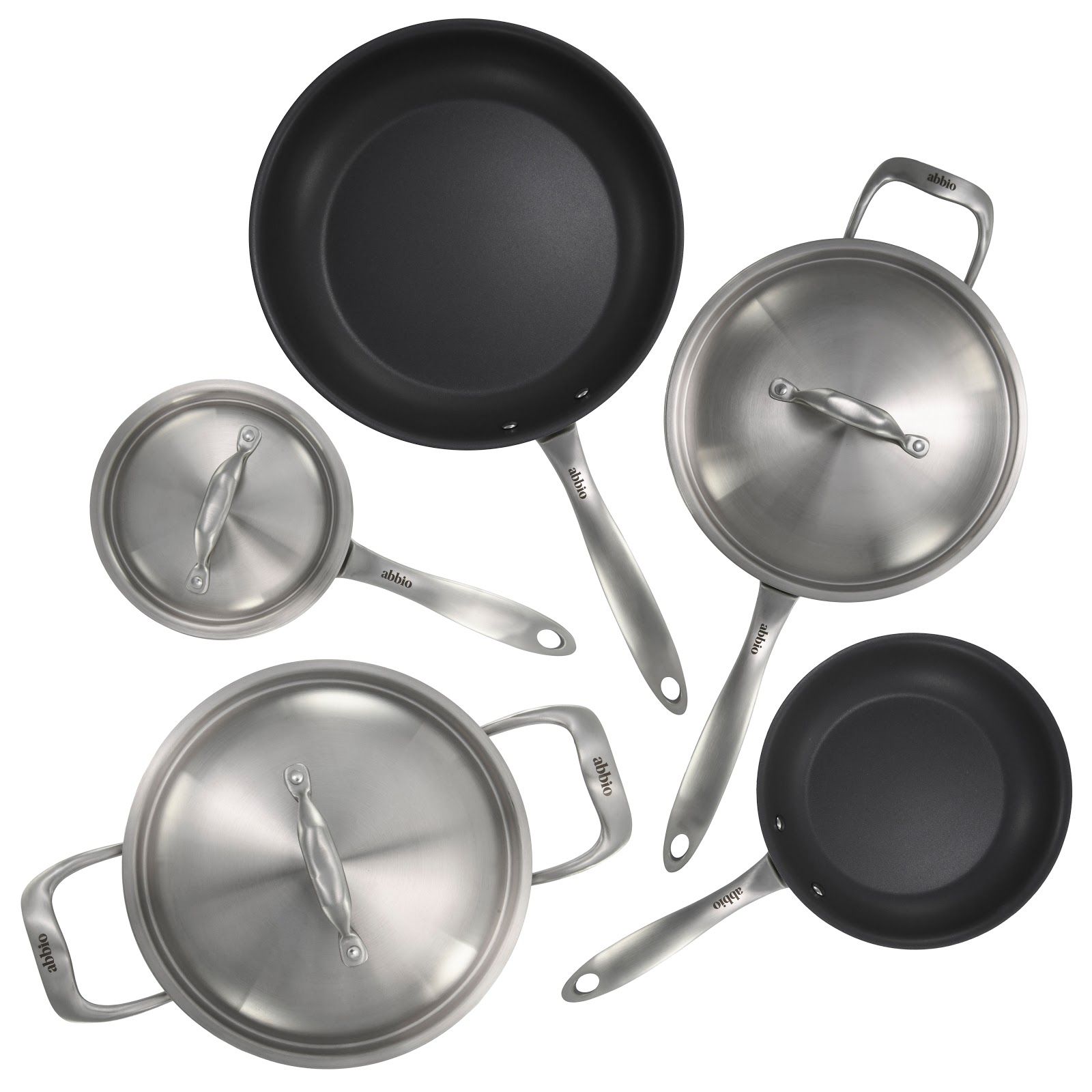
Next we needed to solve the question of Nonstick. We did not want our home cook to get their set of Abbio and immediately struggle with delicate foods like fish and eggs sticking to the bottom of the pan. So we went to one of the leading nonstick labs in the US and worked with them on a coating specifically designed for the home cook - extra durable and resilient to scratching.
Did you have any experience/expertise in the area?
From a product perspective, we were fortunate to bring on an advisor with deep expertise in cookware manufacturing and supply chains. We had a vision for the product, and she helped guide us through the development and production process.
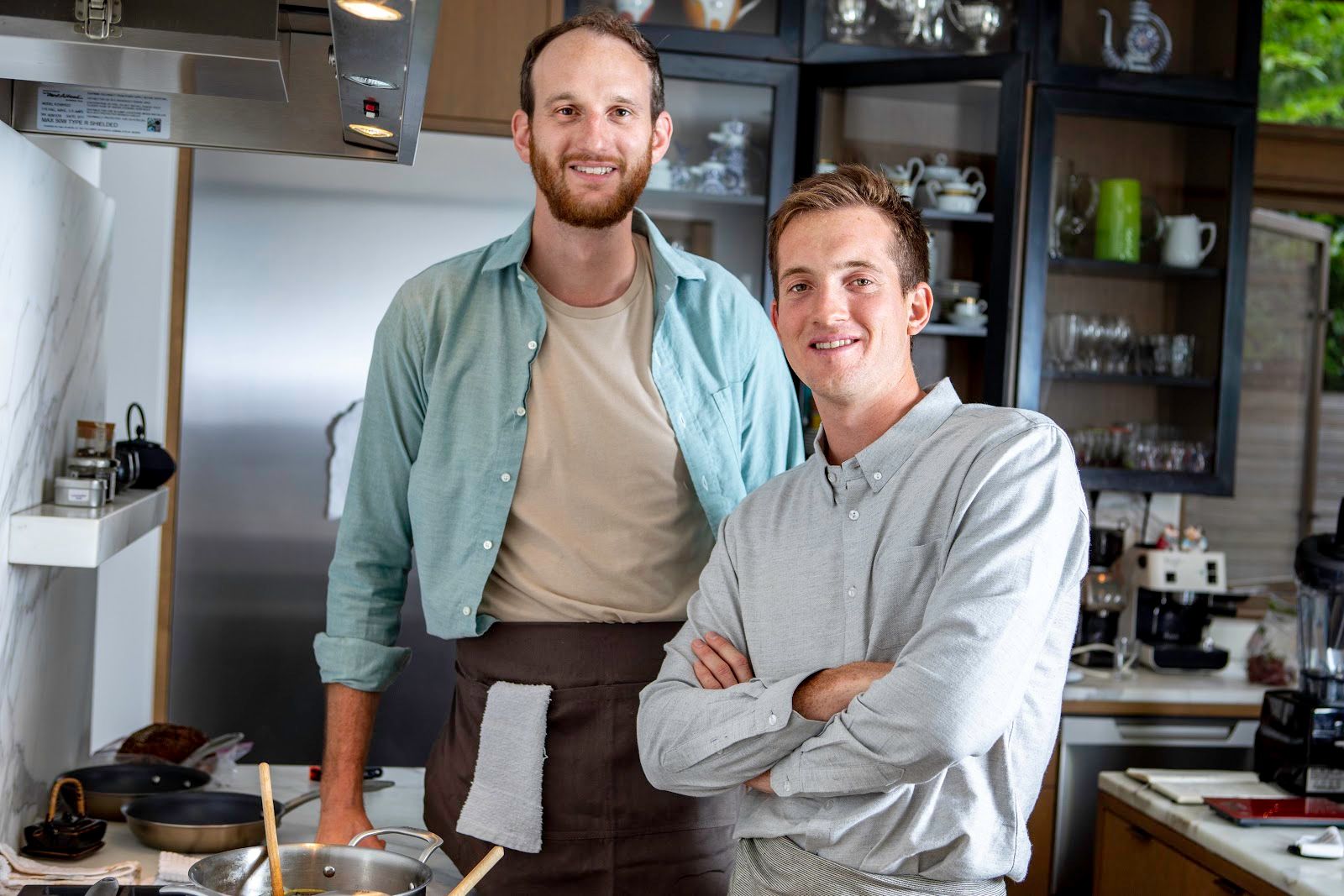
From a business and strategy perspective, Eric and I both come from product management backgrounds at technology companies. We spent so much time figuring out how to make digital experiences more seamless and intuitive for our end customers that it was only natural for us to apply the same process to cookware. Our past experience led us directly to our goal of simpliciation.
Have you raised any money? How much?
We raised a very small round from immediate friends & family, but the majority of the funding came from our personal savings.
What regulatory approvals did you have to go through?
The product underwent rigorous testing to meet US safety guidelines, most notably Prop 65 (California).
Who is your target demographic?
Our customer is an aspiring or confident home cook, but not someone who would consider themselves a pro. Those people tend to have already invested in high quality cookware, whereas our customer is making the transition from disposable junk to their first nice set. In addition, there are clear life milestones that spur a cookware purchase - moving into a new home, moving in with a significant other, getting married and having kids.
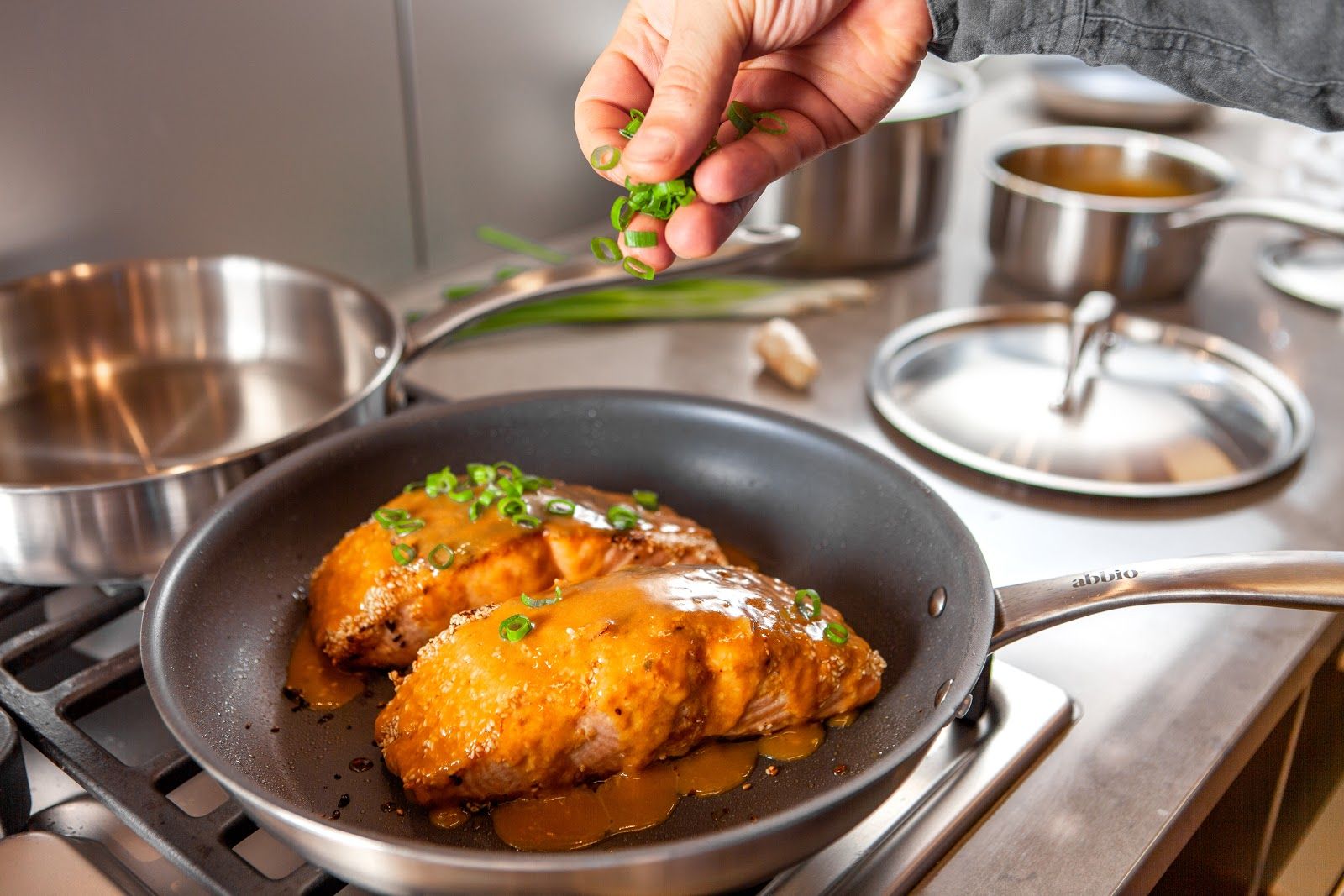
And in an interesting twist, our customer profile shifted as COVID hit and everyone started doing a lot more home cooking. We have many happy customers who never considered home cooking ‘fun’ but felt like they needed to make an investment in line with the amount of time they were spending in their home kitchens. Now they’re Abbio converts.
What is the funniest/most strange customer request you’ve had?
Many customers are shocked to know that they can sear on Abbio Nonstick and get great results without ruining the pan. We get a lot of incredulous customer inquiries about this.
How did you fund the idea initially?
Early on we leaned on a network of contractors around the world. Because we are self funded, we need to be lean and scrappy. But not at the expense of having a great product and a great customer experience. Our remote teams allowed us to do that.
Did you run any companies prior?
Eric started and ran a specialized apparel business in college. I ran Ecom & Operations for a fashion company called John Elliott for five years. It’s a different product and customer, but so many of the lessons I learned apply directly to Abbio.
What were your family and friends first thoughts on your company?
The reaction was mixed. Some were supportive and encouraging. They thought the concept was good and were excited to be early customers.Others were skeptical. A common piece of feedback was, “there are thousands of cookware companies. It seems like you are trying to break into a very crowded market.” I took that feedback to heart, and I’m always thinking about how Abbio is better and different from the rest of the cookware space. But I certainly didn’t let the feedback discourage me. Large, established markets are often the ones most in need of innovation and a fresh approach.
What motivates you when things go wrong? What is the end goal?
Without sounding defeatist, I always expect something will go wrong. That’s just the nature of running a business. And in a twisted way, the problem solving aspect is what makes it fun for me.
Do you have any advice for someone just starting out?
Figure out what your core strengths are, and then surround yourself with people who are experts in other areas of your business. These experts don’t necessarily need to be employees, especially when it’s early in the life of the business and your ability to hire is very limited. Instead, your team can be friends, family or even people to whom you gift free product or services for a bit of their time and advice.
What has driven the most sales?
Partnerships with professional chefs, cooking personalities and product marketplaces. Even in a depressed advertising market, it’s prohibitively expensive for a small brand to establish itself through paid channels like Instagram/Facebook and AdWords. Instead, we’ve sought out partners with overlapping audiences to get the word out about Abbio.
What is stopping you being 3x the size you are now?
Cash. I think if you are a self-funded consumer product business and you have great product-market fit, then the next big challenge becomes cash flow. We are always thinking about how to place our next (bigger) order for inventory.
How do you protect yourself from competition?
We are never complacent, and we never stop innovating. The moment we are happy with our product and sales results is the moment someone else comes along with a similar approach to the problems we’re solving.
What are the top 3-5 apps your business could not run without? Why are they essential?
- Shopify - It’s been said before, but it’s worth repeating. Shopify has nearly eliminated the barrier to entry for consumer product companies that want to sell online. Before Shopify, we might have invested $50k in building out a functional ecom website. Shopify enabled us to create an even better digital experience on our own for a fraction of the price.
- Google Analytics - I’m shocked at the quality and depth of data I can get for free through GA. I look at our website traffic patterns every day, and we make most of our marketing decisions through the lens of data.
- Email - It’s been fashionable the last few years to bash on email in favor collaboration apps like Slack and Msft Teams. But I like email as a long-form communication tool because it forces the sender to organize his or her thoughts. We use Slack as well, and it’s a great platform for real time conversations. It’s just not the right medium for laying out a strategy or thinking beyond what’s happening right now.
What are your favourite books?
- Powerful: Building a Culture of Freedom and Responsibility
- Trillion Dollar Coach
- This is Marketing
- Shoe Dog
What are the next products you’re working on?
Abbio’s emphasis on simplicity means we will never be the brand that sells 46 different sizes, shapes and types of cookware. However, there’s an entire kitchen full of tools that need reinventing...
Where do you see the company in 5 years?
I see Abbio being your one-stop destination for a curated assortment of the best kitchenware. If you are a pro chef who cares about the angle of the blade of your chef’s knife, then you’ll keep shopping at specialty stores. But if you’re an aspiring or proficient home cook and you simply want the best tool without having to do all the research, you’ll come straight to Abbio.
What is current revenue? If you don’t mind sharing
We’ve grown 100% month over month for the last 3 months. We know part of this growth is due to COVID and everyone spending a lot more time in their home kitchen. But we also have a sub-5% return rate and a lot of happy customers.

